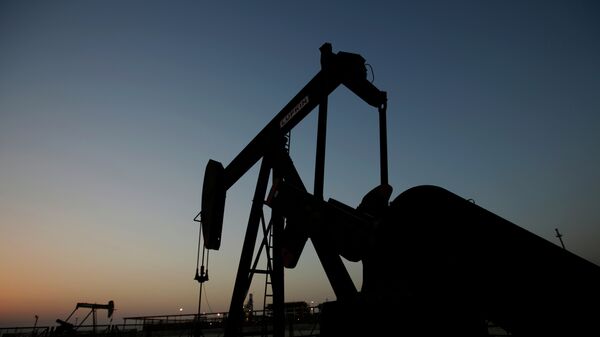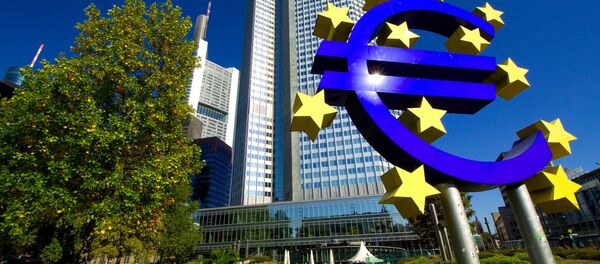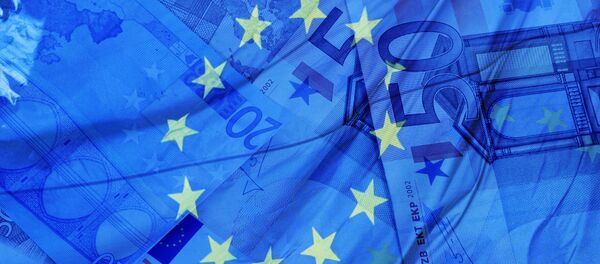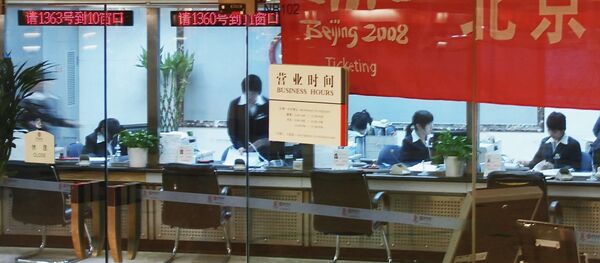MOSCOW, December 2 (Sputnik) — Stock markets worldwide grew Tuesday on statements from the US and the IMF, driving oil and the dollar FX rate up, having recovered from yesterday’s losses caused by pessimistic growth prospects in China and the EU.
European stock markets have reached a two-month high on Tuesday, driven by energy equities and the positive anticipation of a decisive stimulus action to be announced by the European Central Bank (ECB) later this week. Bloomberg European 500 Index added 0.34% and Euro Stoxx 50 added 0.02%, according to Bloomberg data. Germany’s DAX index briefly exceeded its highest close during the trading session, retreating slightly soon afterwards, adding 0.6%. London’s FTSE gained the most in Europe, rising by over 1% on the advance of oil corporations, including BP, Total and Royal Dutch Shell, all adding 2.1% on average. French CAC 40 index added 0.9%.
“Stocks are still showing they are the best game in town as energy prices sink, dragging deflation expectations,” Daniel Weston of Munich-based Aimed Capital GmbH said. That may trigger “further ECB action to come to support growth and an inflation target,” he added, as quoted by Bloomberg.
However, the looming ECB stimulus does not invoke bullish sentiments in all investors, as some of them fear monetary easing and the subsequent weakening of the euro will cause a depreciation in European assets, meaning it is perhaps high time to sell before the ECB policy meeting.
“Where they are at the moment they need to use all available tools,” Lagarde said, as quoted by the Wall Street Journal. “They have to get on with it and do it.”
US Federal Reserve Vice Chairman Stanley Fischer and New York Fed head William Dudley both said Monday that the cheaper energy is only temporary and will not distract the Fed from its next big target: raising the interest rate. Their separate announcements prompted the dollar to strengthen, possibly leveraging further pressure on other currencies worldwide.
Asia-Pacific shares also went up encouraged by optimistic prospects of global growth, with the MISC index of Asia-Pacific equities sans Japan adding 0.6%. Hong Kong’s Hang Seng added 1.23%, Shanghai composites rose 3.11%, and Australia’s S&P/ASX 200 added 1.41%, all driven by the rebound in commodities.
Despite the optimistic market situation, the Eurozone is now even closer to deflation, as evidenced by factory prices data, released today by Eurostat. In October, manufacturing producer prices at the factory gate fell by 0.4% compared to September in the Eurozone, and by 0.5% in the EU-28, Eurostat said. In a year-on-year estimate, industrial prices decreased by 1.3% in the Eurozone and by 1.5% in the EU-28.
Now, as the $12.4 trillion Eurozone economy is close as ever to deflation, the ECB is anticipated to increase the scale of bond purchases Thursday. However, the ECB may once again take the wait-and-see position, as there is no particular urgency for action at this point, and no major threat to EU growth is seen in the short-term.






